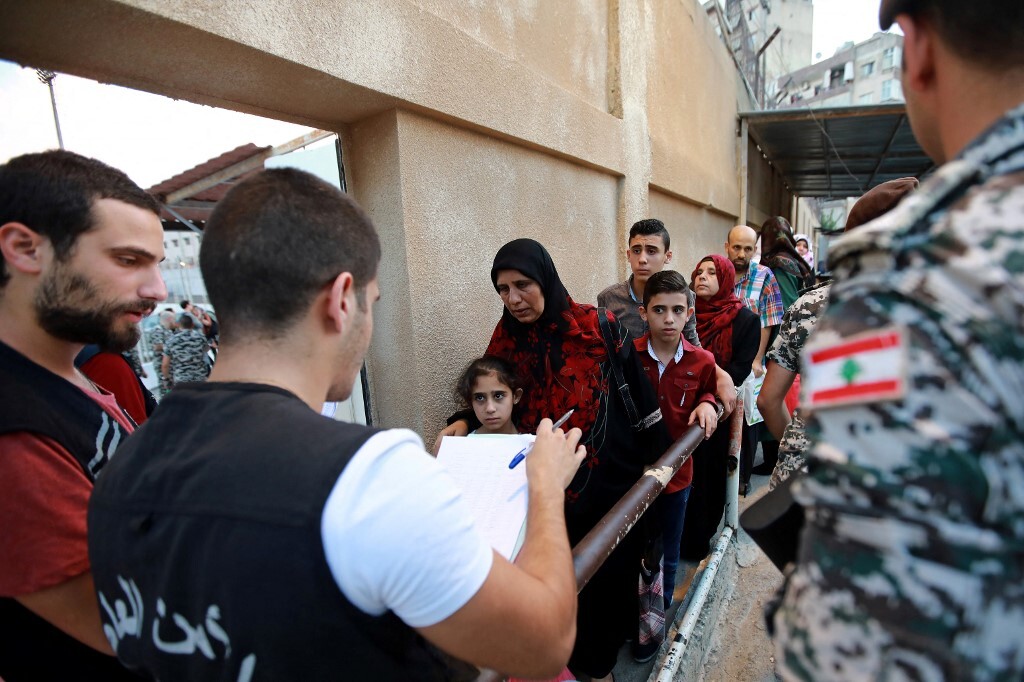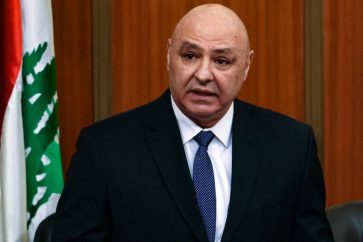The issue of Syrian refugees is back in the spotlight in Lebanon, with Lebanese government being under international pressure to keep the Syrians on its soil and Damascus stipulating ministerial cooperation with Beirut in order to get the refugees back in their homeland.
Lebanese daily Al-Akhbar reported on Monday that the issue of Syrian refugees has dominated the political scene in recent weeks “in light of numerous regional factors that reflected an Arab openness towards Syria in the form of negotiations aimed at the return of refugees.”
The paper pointed to recent discussions about the need to repatriate them to their home country due to the political, social, and economic costs borne by Lebanon due to their presence.
Al-Akhbar reported a Lebanese “sense that the implementation of Syrian refugees’ return is almost impossible”, despite a meeting by the Lebanese government which resulted in the Lebanese General Security being tasked with coordinating the issue with the Lebanese Security Forces.

The daily attributed this “sense” to the sharp Lebanese division between supporters and opponents, “as well as the political pressure exerted by non-governmental organizations that work with the international community and benefit from unmonitored funding programs, serving the external powers’ project aimed at resettling of the Syrian refugees in Lebanon.”
Al-Akhbar quoted relevant sources as saying that “no security agency in Lebanon has offered confirmed information on the numbers of refugees.”
The sources believe that “there will be no solution for them,” pointing out that “the numbers said to have left are incorrect,” according to the daily.
The sources also stated that “the meetings held by the acting Director-General of General Security, Brigadier General Elias al-Bissari, with the refugee commission and Syrian and European officials, showed that the difficulties that previously prevented their return are still valid.”
In my first introductory meeting with B. Gen. Elias Baissari, we discussed areas of cooperation between the UN and @DGSGLB . We addressed Lebanese concerns regarding the issue of Syrian refugees and the importance of adhering to international law. pic.twitter.com/06z0VE9JNi
— Joanna Wronecka (@JWronecka) May 2, 2023
“Syria has informed Lebanese authorities that it would not accept discussing the solution of the issue through a security agency and that it wants cooperation and coordination at a ministerial level. Consequently, it is incumbent upon the Lebanese government to establish a high-level ministerial delegation with the explicit purpose of undertaking a visit to Syria, to engage in comprehensive discussions surrounding the modalities of repatriation and capitalizing on the favorable settlement conditions within the region, in order to expedite the resolution of the current crisis,” Al-Akhbar cited the sources as saying.
Notably, the previous ministerial delegation’s visit to Syria subsequent to the February 6th earthquake constituted a significant milestone, breaking the longstanding embargo on Damascus and paving the way for a potential normalization of diplomatic relations between the two nations, the daily added, noting that Mikati did not respond to such calls and insisted on limiting the task to the General Security due to the international pressure he faced.
Earlier last week, former Lebanese president Michel Aoun warned against a plan to integrate Syrian refugees in Lebanon, noting that some European countries are hindering their return to their homeland.
“We know who is behind the entrance of Syrian refugees into Lebanon, and we had warned against such scenarios,” Aoun said on April 30.

The ex-president said he was not ashamed to say that most of the European countries have been working to keep the Syrian refugees in Lebanon and prevent their repatriation.
Similar remarks were also made last week by Nawar Al-Sahili, a Hezbollah official who is tasked with following up on the Syrian refugees’ issue. Al-Sahili stressed that both the United States and European countries have been pressing Lebanon in order to prevent their return.
The Hezbollah official also warned that Lebanon has been paying heavy price – on financial, social and security levels – due to the presence of huge numbers of Syrian refugees on its soil.
Source: Al-Akhbar newspaper (translated and edited by Al-Manar English Website)




